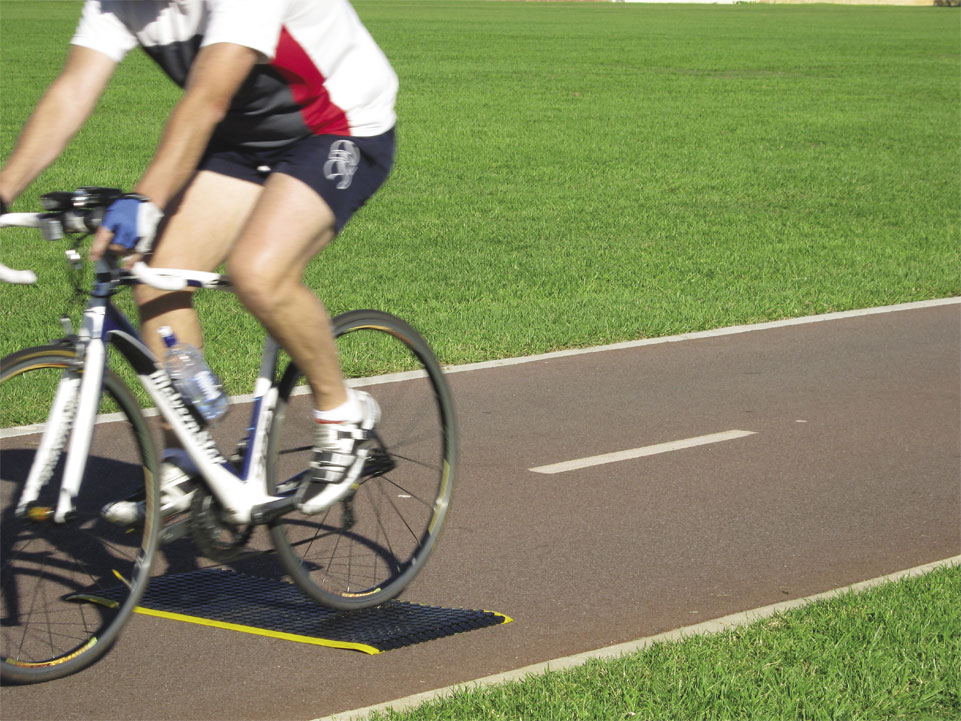
case study
Advanced Warning Mats Improve Safety
Following a range of near-miss incidents for workers and community members on Principal Shared Paths (PSP), in collaboration with our Integrated Services Arrangements partner Downer Mouchel, Main Roads arranged the trial of an innovative safety measure. PSPs are a high standard Shared Path primarily provided for regional commuter bicycle trips, though they serve many local destinations along the way. These paths are designed to offer a high level of safety for pedestrians and bicycle riders due to their superior standards and separation from motor traffic.
It has been observed that in the course of maintenance works being carried out on our PSPs, users were not always complying with or aware of traffic management initiatives warning them in advance of such works. The result being that there have been a growing number of near-miss incidents recorded involving bicycle riders, pedestrians and maintenance workers.
Due to the nature and high design standards of PSPs it is not uncommon for bicycle riders to ride at high speeds with their heads down, often missing the traffic management devices in place during path works. To address this issue our maintenance team worked with a group of bicycle riders to trial an innovative solution.
The trial involved a variety of rubberised mats the width of a standard PSP, positioned across the path whilst participating bicycle riders rode their bikes over them in monitored dry, wet, sandy and rocky conditions. The objective was to ascertain whether these mats, to be used well in advance of the works' site with warning messages like 'Slow Down – Path Works Ahead', would alert the bicycle riders become more aware of the potential risks ahead and to act accordingly.
The mats chosen were designed to create just the required impact without causing the bicycle riders to fall off their bikes or veer off the path or sustain any kind of injury. The use of such a device during path works is targeted to ensure the safety of all PSP users including pedestrians, parents with prams, special needs persons and bicycle riders and the personnel working on or around the PSPs. If this trial proves successful, appropriate high visibility warning messages will be designed to ensure improved safety during night works as well.


 previous page
previous page
 previous page
previous page
